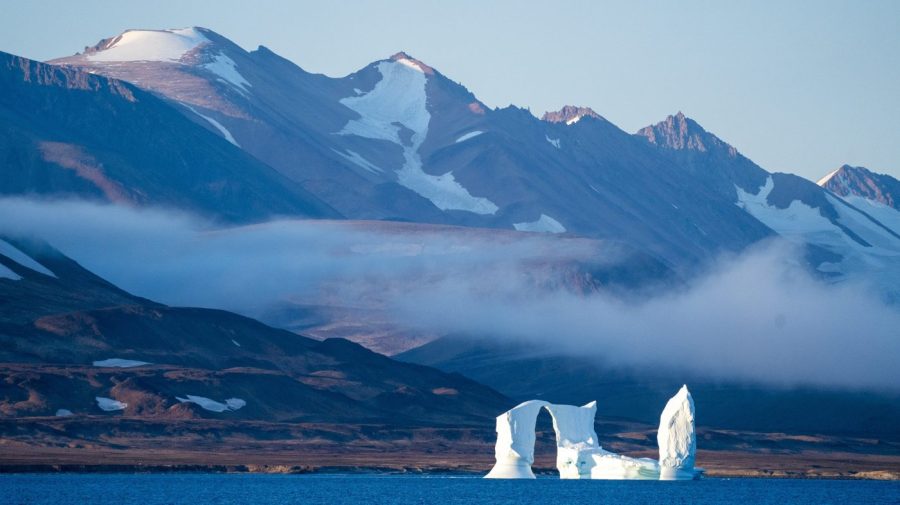
President-elect Donald Trump’s renewed desire to acquire Greenland, by force if necessary, has created much ado in Denmark, Greenland and NATO Europe. Both Denmark, which provides for Greenland’s defense, and Greenland’s political leadership oppose the idea of the island being ceded to the U.S. But an invasion of Greenland is not necessarily on the cards.
If it appears that an American invasion is imminent, Denmark and one or more other NATO allies would likely invoke Article Five of the North Atlantic Treaty, which would commit each of the NATO legislatures to vote on coming to Greenland’s defense. As the treaty states, “if such an armed attack occurs, each of them … will assist the Party or Parties so attacked by taking forthwith, individually and in concert with the other parties, such action … including the use of armed force, to restore and maintain the security of the North Atlantic Area.”
In other words, if Washington chooses to invade Greenland, its heretofore NATO allies could band together to assist Greenland; indeed, the U.S. Congress could, improbably, vote to act on Article Five, thereby committing America to defend Greenland against its own invading forces!
Of perhaps greater concern, and more realistically, Article 42.7 of the European Union’s 2007 Lisbon Treaty automatically commits member states to the military defense of one another. It does not provide for legislative approval, as does the North Atlantic Treaty. Thus, the combined forces of NATO Europe (though not Canada, which is not an EU member) would be committed to confronting an American invasion.
Neither of these scenarios is likely. And Trump’s concern about the Far North is a legitimate one; he is right to seek a more robust defense against potential Chinese or Russian operations in that region. Danish Prime Minister Mette Frederiksen has signaled that he is prepared to discuss these concerns with the incoming president. And there is much that Denmark and other NATO allies can do, if they so wish, to bolster the alliance’s defenses in Greenland.
Denmark should agree to fund most of the costs of additional facilities and bases to be located in Greenland. It is worth noting that Tokyo spends as much as $2 billion, or up to 70 percent of the total annual cost of America’s military operation in Japan. Seoul spends about $1 billion to do the same in South Korea. Denmark should commit to providing at least as high a percentage as that of Japan to support American operations in Greenland.
Greenland currently hosts Pituffik Space Base, formerly known as Thule Air Base, located in northwest Greenland. The U.S. also operated an Air Base in Sondrestrom in central Greenland until 1992, when the base was converted into a civilian airport; the Cold War had ended and Washington did not view Russia as a threat to Western security. Only a small Air National Guard detachment continues to operate at Sondrestrom.
As an initial step, Denmark could expand the military facility near Sondrestrom’s civilian airport. The now-closed Rhein-Main air base offers a model for such an arrangement. That base was adjacent to Frankfurt International Airport, with which it shared runways and facilities.
Denmark currently spends no more than about 1.6 percent of its GDP on defense. Though the Danish government has committed to meeting the alliance’s 2 percent military spending goal in coming years, it is likely that NATO will raise that target to 3 percent. Reaching that level of defense spending while committing to spend funds on an expanded American presence in Greenland would certainly strain the Danish budget.
Other NATO allies, especially those in the Far North, should consider contributing toward the increased costs of expanding the airport to accommodate a military facility, thereby easing Denmark’s financial burden. After all, an increased American presence in Greenland would constitute a powerful contribution to NATO’s common defense. Washington and NATO should also consider crediting Denmark’s expenditures in Greenland toward that 3 percent objective.
There is little doubt that NATO must do more to ensure the security of its northern flank. For that reason, Trump’s concerns are not without merit. However, the issue need not be one that prompts Washington to even contemplate taking military action.
Funding an expansion of American presence on the island, with Denmark and perhaps others emulating America’s Asian allies and funding that expansion, offers a practical solution to the need to bolster security on NATO’s northern flank, without prompting Europe to conjure up nightmare scenarios over going to war with its strongest and closest ally.
Dov S. Zakheim is a senior adviser at the Center for Strategic and International Studies and vice chairman of the board for the Foreign Policy Research Institute. He was undersecretary of Defense (comptroller) and chief financial officer for the Department of Defense from 2001 to 2004 and a deputy undersecretary of Defense from 1985 to 1987.












